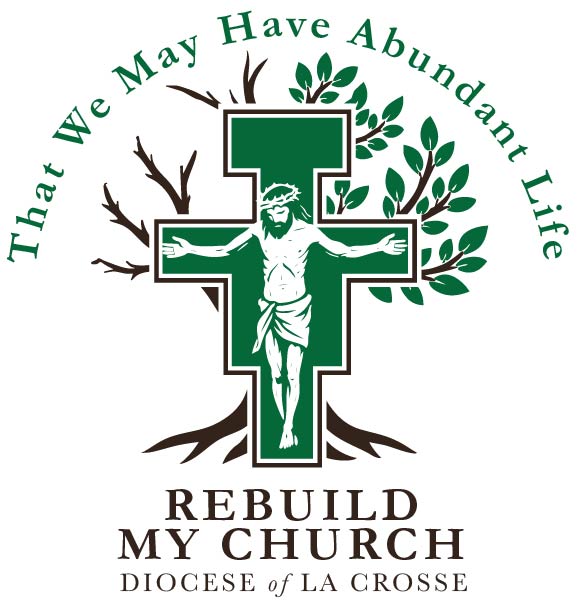
Seven Indicators of Parishes Fully Alive on Mission
As a guide for our conversations, we are considering 7 signs or markers that you tend to see in parishes that are fully alive on mission:
1) Vibrant Sunday Mass
2) Stable and Healthy Leadership
3) A Culture of Discipleship
4) A Culture of Accompaniment
5) Missionary Outreach
6) Faith Formation
7) Stewardship
In examining these indicators, many parishes may discover a need to reimagine or restructure themselves if they want to come fully alive.
1) Vibrant Sunday Mass
Masses are celebrated in a dignified manner that follows liturgical norms and includes adequate and well-trained liturgical ministers.
Newcomers have a positive Sunday Mass experience at the parish and are likely to return or tell others about it (possible considerations: culture of hospitality, music, preaching, accessibility for the disabled, amenities for parents and families, etc.).
Masses are scheduled (and not over-scheduled) in such a way that allows for a fuller church, inspiring music, and a dignified liturgy, including adequate and well-prepared liturgical ministers.
The Mass schedule allows priests to pray well and be more present to God and people both during and outside of Mass. As a baseline, each priest celebrates no more than 3 Masses on a Sunday and its Vigil (allowing for weddings, funerals, quinceañeras, First Saturday Mass, etc. earlier in the day on Saturday).
2) Stable & Healthy Leadership
The parish structures in the city or region allow for healthy, capable, and long-tenured pastors to lead the parish(es) in their evangelizing mission. They allow for healthy, capable, and long-tenured school chaplains to bolster the evangelizing mission of their schools.
There is robust and effective collaboration with deacons, lay staff, and volunteers, in a way that frees up priests to exercise their apostolic ministry more fruitfully and allows complementary gifts to enrich the parish community.
Clergy and staff have a realistic workload and are paid just wages
3) A Culture of Discipleship
Members have been and continue to be transformed by their joyful encounter with Jesus in a way that attracts the curiosity of newcomers.
Members regularly engage in all kinds of prayer, especially receptive and silent prayer. Their prayer and sacramental life allow them to discern God’s will and live each day as a “yes” to Him.
Young members are discerning and discovering their vocation, with support from other parishioners.
Volunteering in ministries in the parish includes experiences of encounter, fellowship, and faith formation, not just an isolated checking off of tasks (cf. Acts 2:42).
4) A Culture of Accompaniment
First-time visitors find their encounters with parishioners to be positive and hospitable.
Those who are curious, newer to faith, or rediscovering faith feel welcomed and find easy “on ramps” for involvement and the beginnings of discipleship.
The parish ensures the formation of lay apostles who pray and discern well, who are skilled listeners, and who generously and patiently accompany others.
Those accompanying others continue their own journey of conversion, allowing themselves to be accompanied by and accountable to companions and mentors.
5) Missionary Outreach
Parish members look beyond their church building and effectively reach out to the poor, the sick, the aged, the addicted, abuse survivors, etc.
Parish members are interested and involved in connecting with inactive members, those who have left the Church, and those who do not yet know Jesus.
The parish is aware of and inclusive of new neighbors or immigrants in their midst – especially those who are already Catholic.
The parish invests as necessary in staffing and volunteers that empower the members to be active and effective in these ways.
6) Faith Formation
Adults, including parents as primary educators, have easy access to resources that allow them to grow and be formed in their faith.
Faith formation does not assume that there is already evangelization and discipleship. The parish provides discernment and resources to meet adults where they are on the path of discipleship, rather than one-size-fits-all programming.
The parish is well-resourced to offer adequate faith-formation and fellowship opportunities for the children of those families.
The parish has responsible ownership of its Catholic school(s), ensuring that they are strong in their Catholic identity. In those schools, they actively seek out opportunities to nurture evangelization and discipleship (among parents, staff, students, and their peers).
7) Stewardship
The parish regularly calls its members to discern and grow into their baptismal charisms. The pastor discerns and orders the gifts of the community in a way that promotes stable leadership, maximum involvement, and visible communion.
The parish has adequate, if not abundant, volunteers for its operations and especially for its evangelizing mission.
The parish honors the human needs of priests, staff, and volunteers with realistic expectations and communal support.
The parish’s tithing is sufficient to provide for clergy and for a justly paid staff suitable for evangelizing mission (beyond mere self-preservation).
